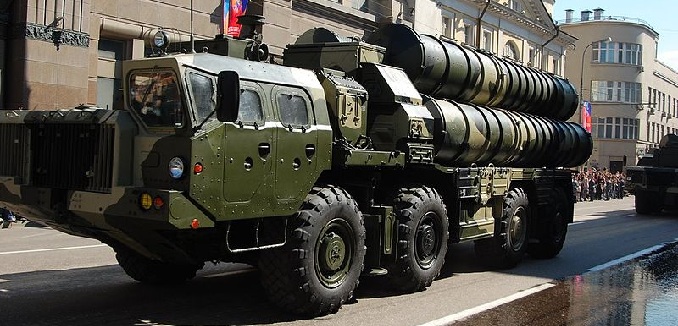Israeli officials are casting further doubt on reports made earlier this week that had Syrian ruler Bashar al-Assad asserting that Syria had begun to receive advanced S-300 anti-aircraft missiles from Russia.
Israeli Defense Minister Moshe Yaalon had said Tuesday the missiles still hadn’t been shipped to Syria. Former defense official Danny Yatom said in an Israel Radio radio interview that if what Assad claimed was true then the missile shipment was a “surprise.” However, Yatom clarified that it’s more reasonable to accept what Yaalon said rather that Assad’s claims, which appear to be “part of the ongoing rhetoric.” The analysis has since been echoed by additional military sources.
On Friday, reports in Russian newspapers confirmed the Israeli assessment. Multiple outlets reported that the missiles will not be delivered until later this year, at the earliest. The daily Komersant quoted an anonymous source who asserted that if a deal is completed, it won’t be before the spring if 2014.
It is estimated that it would take at least 4 to 6 months of training, deployment, and preparation by the Syrian military before the batteries would be ready for battle.
Israel fears that if the sophisticated S-300 gets into Syrian hands that could restrict the Israeli Air Force’s (IAF) freedom of action in both Syrian and Lebanese airspace.
More troubling is that the S-300 missiles could also pose a threat to Israeli civilian aviation.
Israeli officials hint that they would preempt and destroy the missiles before they become operational.
Assad has vowed to retaliate if Israel attacks Syrian territory in the future. The IAF has reportedly struck inside Syria three times this year to block the transfer of advanced weapons to Hezbollah, the Iran-backed terror group allied with the regime.
The decision by Russia to supply the batteries and missiles to Syria, which has been torn by a bloody civil war for 28 months, also concerns the United States and the NATO alliance. Russian official have explicitly described their intention to supply the advanced systems as a way to deter Western action.
In the meantime Russia has announced its intention to deliver Mig-29 fighter planes to the Syrian Air Force. The Director General of the Russian company said today that the size of the order will be “more than 10” planes but was not specific. The delivery will likely happen in 2014. The Syrian military’s ability to leverage air assets has proven critical in the regime’s efforts to halt and roll back rebel advances.
At the behest of Iran, Hezbollah has dispatched thousands of fighters to bolster the Assad regime. Military experts believe that it is the Iran-Hezbollah backing that enables the Assad regime to remain in power. The United States has publicly called on Hezbollah to withdraw from Syria.
[Photo: Piligrims74_(Anton) / Wiki Commons]




